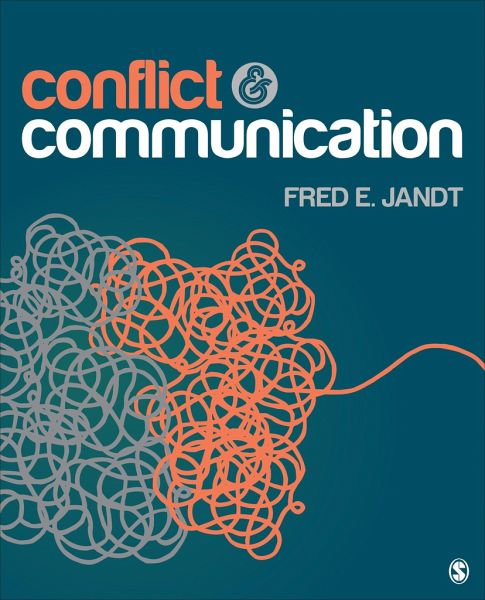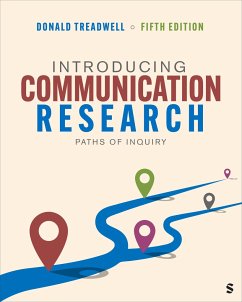Nicht lieferbar

Fred E. Jandt
Broschiertes Buch
Conflict and Communication
Versandkostenfrei!
Nicht lieferbar




Introduce your students to important theories, key concepts, and essential research in the study of conflict, along with practical skills for managing conflict in their daily lives.
Fred E. Jandt was born of second-generation German immigrants in the multicultural south-central region of Texas. After graduating from Texas Lutheran University and Stephen F. Austin State University, he received his doctorate in communication from Bowling Green State University. He has taught and been a student of intercultural communication for more than 4 decades, developing his experience through travel and international training and research projects. While professor of communication at The College at Brockport, State University of New York, his reputation as a teacher led to his appointment as SUNY¿s first director of faculty development. He has retired as professor and branch campus dean after having been named outstanding professor. He has also been a visiting professor at Victoria University of Wellington, in New Zealand. He has extensive experience in the areas of intercultural and international communication, negotiation, mediation, and conflict management. He was one of the first scholars to introduce the study of conflict to the communication discipline with his text Conflict Resolution Through Communication (Harper & Row, 1973). He has subsequently published many other titles in this area, including the successful trade book Win-Win Negotiating: Turning Conflict Into Agreement (Wiley, 1985), which has been translated into eight languages; a casebook on international conflict management, Constructive Conflict Management: Asia-Pacific Cases (SAGE, 1996), with Paul B. Pedersen; Conflict and Communication, Third Edition (Cognella, 2025); and Negotiation and Mediation (Cognella, 2025). For several years, he conducted the training workshop "Managing Conflict Productively" for major corporations and government agencies throughout the United States. Jandt continues to train volunteers who are learning to become mediators in the California justice system and served as an elected trustee of the Desert Community College District.
Produktdetails
- Verlag: SAGE Publications Inc
- Seitenzahl: 272
- Erscheinungstermin: 25. April 2016
- Englisch
- Abmessung: 231mm x 185mm x 10mm
- Gewicht: 414g
- ISBN-13: 9781506308272
- ISBN-10: 1506308279
- Artikelnr.: 44160167
Herstellerkennzeichnung
Libri GmbH
Europaallee 1
36244 Bad Hersfeld
gpsr@libri.de
Für dieses Produkt wurde noch keine Bewertung abgegeben. Wir würden uns sehr freuen, wenn du die erste Bewertung schreibst!
Eine Bewertung schreiben
Eine Bewertung schreiben
Andere Kunden interessierten sich für







